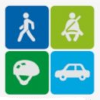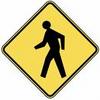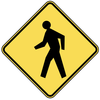Road Safety Action Plan for Saanich
- Read more about Road Safety Action Plan for Saanich
- Log in to post comments
 Saanich has announced the public release of the district's Road Safety Action Plan. The plan is focused on delivering effective actions over a 10-year period that will improve the livability and safety of the community.
Saanich has announced the public release of the district's Road Safety Action Plan. The plan is focused on delivering effective actions over a 10-year period that will improve the livability and safety of the community.

 According to the website, the
According to the website, the  Todd Litman of the
Todd Litman of the  The
The  While the
While the 
 The City of St. Paul, Minnesota has created an innovative program to increase driver compliance with the requirement to yield to pedestrians at unsignalized marked crosswalks in the city. Prior to this initiative, The study initially observed 32% of drivers yielding and frequent multiple threat passing incidents.
The City of St. Paul, Minnesota has created an innovative program to increase driver compliance with the requirement to yield to pedestrians at unsignalized marked crosswalks in the city. Prior to this initiative, The study initially observed 32% of drivers yielding and frequent multiple threat passing incidents.
 Does your community have a road safety plan? If if does, your local government is probably ahead of most. If it doesn't, you should be asking your elected representatives why this is the case. After all, you are more likely to suffer financial loss, injury or death from a traffic related incident than you are from all other criminal actions combined.
Does your community have a road safety plan? If if does, your local government is probably ahead of most. If it doesn't, you should be asking your elected representatives why this is the case. After all, you are more likely to suffer financial loss, injury or death from a traffic related incident than you are from all other criminal actions combined. Every year in Canada, drivers kill 16 child pedestrians and 5 child cyclists. They also injure 1,300 and 700 respectively. Sadly most of these incidents are preventable and we can do things to make it safer for children to walk or ride a bicycle in our community.
Every year in Canada, drivers kill 16 child pedestrians and 5 child cyclists. They also injure 1,300 and 700 respectively. Sadly most of these incidents are preventable and we can do things to make it safer for children to walk or ride a bicycle in our community.